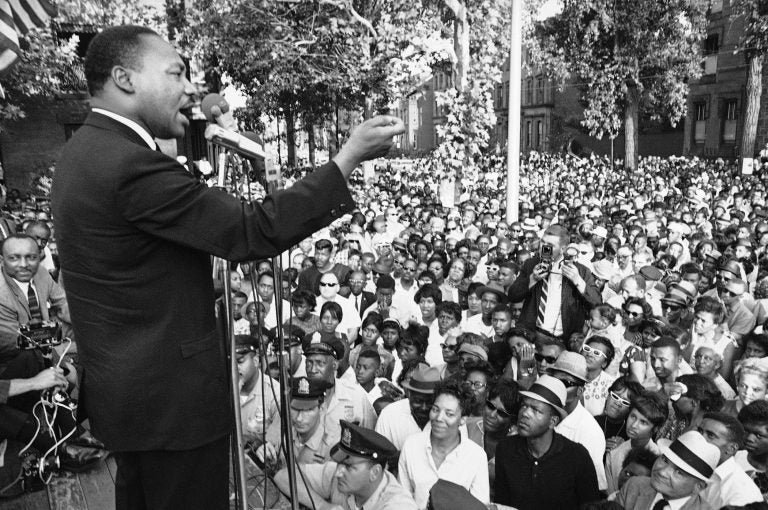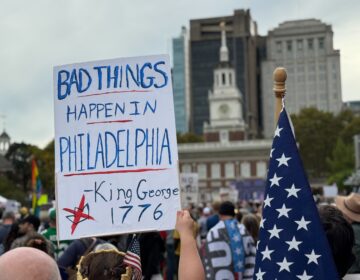Protest’s living legacy: Why activists are still protesting five decades after MLK
How has protesting in America — and Philadelphia — changed since Martin Luther King, Jr. fought for civil rights and how effective is it?
Listen 12:34
A line of police stands in front of platform from which Dr. Martin Luther King speaks during mass meeting in front of all-white Girard College in Philadelphia August 4, 1965. Dr. King said the wall surrounding the school was a symbol of evil and called for continued efforts to integrate the school. (AP Photo)
How has protesting in America — and Philadelphia — changed since Martin Luther King, Jr. fought for civil rights in the 1960s and how effective is it? On this episode of The Why, Philadelphia activist, the Rev. Mark Kelly Tyler, senior pastor at Mother Bethel A.M.E. church, joins us to talk about about major protests in the city over the last 60 years and why activists are still taking to the streets today.
WHYY is your source for fact-based, in-depth journalism and information. As a nonprofit organization, we rely on financial support from readers like you. Please give today.






